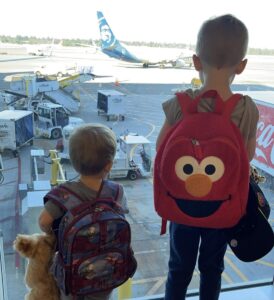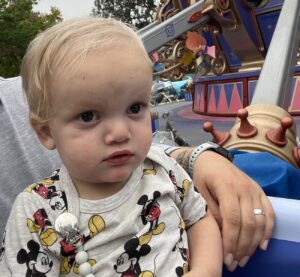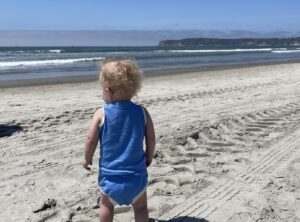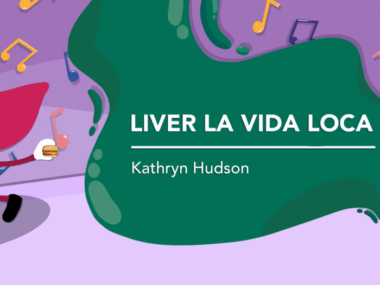The unique challenges of traveling with children who have liver disease
Extra items and accommodations are just part of the equation
Written by |

Traveling with small children is challenging. While the destinations that are visited and the memories that are created are worth it, getting there entails a whole host of logistical problems. When you have a child with liver disease, those difficulties come with extra layers that you must learn to navigate.
Our 3-year-old son, Finley, has Alagille syndrome, so traveling has required us to bring more items than parents would for healthy babies. Cans of formula, bottles of medication, and ice packs to keep the bottles and medication cold are just the tip of the iceberg.
Everyone hates going through airport security. But when traveling with Finley, especially when he was a baby, I dreaded it. We knew with 100% certainty that we’d be stopped so that Transportation Security Administration agents could check all of Finley’s medication and formula. They’d open every bottle, can, or other type of container. This occurred while one parent was trying to get the other bags through screening and simultaneously wrangle our two children. Chaos is an apt description.
In 2022, we went to Disneyland in California, and the kids had a blast. Everything we experienced was worth it to create those memories. But let’s be real: It’s stressful as a parent, and more so when you’re worried about constantly finding ways to keep your child’s specialized formula cold in a cooler on an extremely hot day. As it turns out, getting ice at the park was easier than what we encountered at our hotel.
Our hotel room had a mini fridge, but no freezer. This was a detail we hadn’t considered before the trip. We have a special cooler that acts as an ice pack and cooler combo, along with regular ice packs that we put inside it. We were visiting Disneyland during the summer, so it was essential to have the ice packs ready to bring formula to the park. The only option was for me to work with hotel staff to place the cooler in the kitchen’s storage freezer.
Hotel staff was very accommodating, but it was quite a process to freeze the materials that keep our child’s essential formula cold during our trip. Each morning of our stay, I’d have to go talk to a new face at the front desk to retrieve them. I’d walk these folks through the details of where the cooler and the ice packs were and why they were there. It was a stressful but eye-opening adventure for us. It was a good learning experience for planning future trips.
Thankfully, today, Finley has fewer medications, none of which require refrigeration. Like any other child, the number of items required for travel decreases as he gets older. But there are intangible things that every rare disease family should know when traveling outside their local area.
The first thing we look up is where the closest children’s hospital is. In our case, Finley has been leading a very stable life, but you never want to be caught unprepared. Having this information in mind ahead of time to “break glass in case of emergency” gives our family peace of mind.
One of the most important pieces of information we received about traveling came from our team of gastroenterologists, who told us that in the event of a medical emergency, we should provide their contact information so that medical responders could get basic information about Finley and his Alagille diagnosis.
Most doctors we interact with outside of our care team haven’t heard of Alagille syndrome. While we can help to educate them, we aren’t as effective as our care team is in communicating what Finley may need during an emergency. Having this plan in place and a phone number to call is another essential part of our travel planning.
The best part about traveling with our boys is how much they love it. They love seeing their cousins in another state, visiting Disneyland, and playing on the beaches. They talk about all of this fondly. Finley also loves to ask about visiting Charlie the cat, who lives in Iowa with my wife’s family. The memories we’ve made make the challenges worth it. I’m looking forward to more trips with my family, even if we have to navigate some extra hurdles along the way.
Note: Liver Disease News is strictly a news and information website about the disease. It does not provide medical advice, diagnosis, or treatment. This content is not intended to be a substitute for professional medical advice, diagnosis, or treatment. Always seek the advice of your physician or other qualified health provider with any questions you may have regarding a medical condition. Never disregard professional medical advice or delay in seeking it because of something you have read on this website. The opinions expressed in this column are not those of Liver Disease News or its parent company, Bionews, and are intended to spark discussion about issues pertaining to liver disease.










Leave a comment
Fill in the required fields to post. Your email address will not be published.